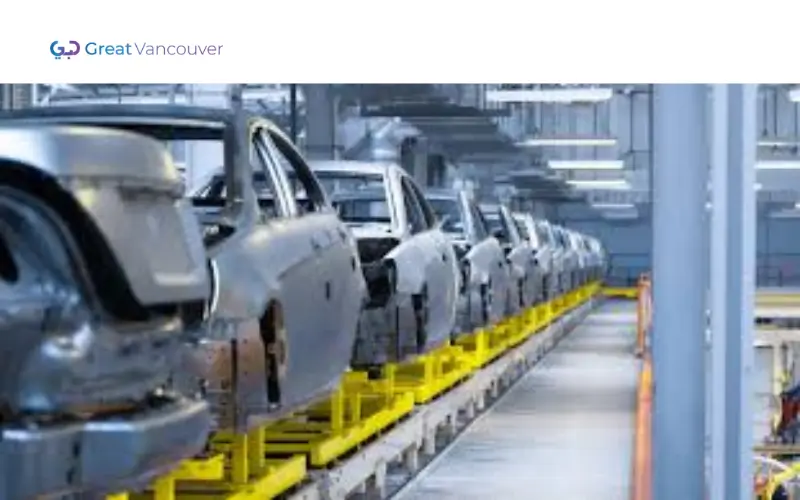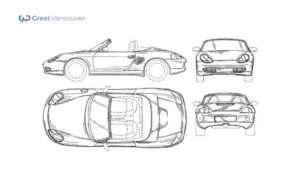An overview of the Automobile and Parts industry
The Role played by the Automotive Industry
Automobiles as a product are a significant segment of the worldwide economy. That is why it manufactures automobiles that drive the global transport systems. Engines, transmissions and electric parts and so on are fundamental elements of automobile. The industry provides millions of jobs and encourages advancements in technology at the same time. This is due to the fact that as the manufacturing of cars expands there will be increased development of other firms particularly with regard to fabrication of auto parts.
What Has Changed in Manufacturing in Years
The years have seen a major evolution of the automotive manufacturing industry. Original equipment manufacturer (OEM), car manufacturing was a slow process and a very labour intensive one at that. Today, automation and robotics, or more precisely, automated medical equipment and instruments are the focus of production. Some changes include 3D Printing also referred to as additive manufacturing has improved auto part production due to sophisticated technologies.
The Automobile manufacturers Industry of the World
Major Automakers & Manufacturers
The automotive manufacturing market is composed of some of the largest automotive parts manufacturers companies in the world and include Ford, General Motors, Toyota, Volkswagen among others. These companies are large scrapers in vehicular assembly and automotive parts forging. They rely on a n etwork of suppliers to enable them a smooth production cycle. A network of smaller, specialised auto parts suppliers is also indispensable for manufacturing all the way from brakes to sophisticated sensors that define contemporary cars.
Growth Prospects of Emerging Markets
It is crystal clear that the automotive manufacturing market of the future is in more
developing counties such as China, India and Brazil. These regions are experiencing rising demand for their vehicles and they will help to shape future trends in the global automobile market. Automotive engineering Manufacturers are now aiming at sourcing locally to cater for the expanding markets.
Major Factors of Automotive Parts
Key Components in Car assembly
Lots of automotive parts go into the construction of every car, truck or any other vehicle, and all those parts have a specific function to play when it comes to the use of that particular vehicle. There are various integral components that are needed in car manufacturing this include engines, breaks, batteries, suspension system, transmission among others. These parts are manufactured made from steel, aluminum and the modern high-strength composites. As the Automobile assembly plants of vehicles grow complex.
Advanced Technologies in Auto Parts
Recently, a lot of changes have been introduced concerning the design of auto parts. Auto makers are now turning to the use of lightweight and durable products like carbon fiber and aluminum to enhance the efficiency of the vehicle’s engine and power. Also, automotives have seen evolution of Spare parts manufacturing where some parts of the car are made intelligent, for instance, sensors and some electronic systems which improve the safety and working of a car.
Technological Advancements in Automobile Industry
Automated Technologies in Car Manufacturing
Robust automation has changed the face of automobiles through a mechanized way of producing many of the mechanical parts. Some of the most common areas include welding, painting, and assembly, where robot utilize increase both efficiency as well as precision. By curtailing the role of human input, this technology also eliminates the role of human mistakes whilst reducing the time taken to produce goods to meet evolving market needs.
Applications of 3D Printing and Additive Manufacturing
Another two fields of considerable demand are 3D printing and additive manufacturing in auto industry parts. These technologies ensure that the manufacture of various parts can be done to form complex structures that are both light and strong. This is most suitable in areas of production including Car manufacturing industry where any additional small weight adds even more problems.
The Manufacturing Process of Automobile Components
Chapter Providing Information
The Manufacturing process in automotive implementing parts production in basic manufacturing of vehicles entails following some steps; namely, conceptualization of the part and selection of material type. After the design of the product is complete, comes the production phase where the part is cast, machined, and assembled. Each bifurcation is managed immensely to be certain all parts match the mandatory level of safety and efficiency.
Quality Assurance and Quality Control
As with all typical manufacturing industries, quality assurance is a very significant factor in automotive production. It guarantees that every part is highly safe and performs well as expected. In that process, they rigorously examine the material for the part to know how it performs when subjected to durability and strength tests. This is specifically crucial especially in such systems as the engine.
Realising the Problems in Supply Chain
Global Supply Chain Disruptions
The automotive supply chain is very huge and it includes auto parts suppliers from different regions of the world. Production of vehicles may be affected by various factors in the supply chain the include natural calamities as well as trade barriers and eventually the covid 19 pandemics. Such risks have forced manufacturers to adapt to various measures which include the movement to risk diversification.
Sustainable and Ethical Materials Supply
Environmental concerns are gradually gaining ground in the automotive industry. Today’s manufacturers are concentrating on buying materials sustainably as well as minimizing the impact of production on the environment. Most organizations have made it their business to source and utilize environmentally friendly substances when manufacturing auto parts.
Robotics and artificial intelligence
Integrated Smart Factories
Smart factories involve application of AI, IoT and robots to design a highly integrated manufacturing intelligent system. These factories enable quick data acquisition, prognostication and control, as well as the integration of the different processes into Vehicle components manufacturing. Using of AI and robotics in automotive industry makes it possible to improve productivity, decrease number of mistakes, and enhance the quality of auto parts.
Improving Performance Accuracy
Robotics is an influential driver of increasing both the accuracy as well as the speed of production in automotive production lines. Mechanization requires robots to complete monotonous tasks, which is law given the level of accuracy needed in auto part fabrication for instance. Robotics also cuts the time required in production, brings down the wages bill significantly, and offers protection to employees against harm. The advancement of robotic systems for the manufacturing of solar photovoltaic cells has continued to unfold with a brighter future in the improvement of the manufacturing process.
Key CSR Iniciatives for Sustainability
Sustainable /Environmental Friendly Material/ Processes
The most significant emerging issue in the automotive industry is sustainability. Automotive makers are finding the opportunities of using recycled plastics, recyclable metals, and eco-friendly fabrics for automobile interiors. Those materials minimize the effects due to car manufacturing on environment. Furthermore, more cars’ components are being developed with the consideration to its energy conserving attributes with relation to carbon emissions.
How to Minimize Greenhouse Gas Emissions in Automobile Production?
Currently, the automotive industry is not idle concerning reduction of its emission of carbon. These include applying cleaner production technologies, enhancing vehicle fuel economy, and substituting EVs for the standard internal combustion engines. The shift to these new automobiles poses a massive challenge with regards to automotive parts since new unique Auto parts production such as batteries and electric drive trains need to be manufactured. With a continuous improvement of technology
The Future of Automotive Manufacturing
Electric Vehicles and Dynamics
The advent of electric vehicles (EVs) remains the most revolutionary transformation in the growth of automobiles. This has changed the lobbying of auto parts since EVs have different subsystems and components of the car manufacturing system from conventional internal combustion engine cars, including separate batteries and electric drive trains. Since the uptake of electric vehicles is growing.
Automobile Manufacturing
Semi and fully-autonomous vehicles will also define another key trend in the automotive manufacturing industry. AVs rely essentially on techniques like sensors, cameras, and AI to drive and this calls for novel parts within automotive systems. These include the higher end automobile components such as lidars, radar, and artificial intelligence chips.
Selection of the Auto Parts Manufacturer
When Choosing an Auto Part Supplier
The supplier of auto parts is important as it will determine prospective strength, quality, and reliability. In a selection process of a supplier for a certain product, it is advisable to check on the background of the supplier, his previous records, and whether he will be in a position to deliver the products on time. The manufacturer should also be in a position to supply quality automotive components of reliable quality and safety standard.
Promoting Quality and Credibility
source of auto parts must, therefore, be reliable and must meet the quality demands of consumers and producers alike. Suppliers need to have their products meet very high standards of safety and quality before they are supplied to manufacturers. If you want long-term reliable performance from your automotive product.
FAQs
What are the primary and secondary constituents of automotive parts?
Auto parts are parts of cars and other vehicles such as the engines, transmissions, breaks, batteries, the chassis or suspension system.
In what ways is the production of automobiles made different by the use of technology?
Use of automation, robotics, artificial intelligence, and 3D printing has offset production line operations, that have enhanced efficiency.
What are the issues in the automotive supply chain?
Des compared to other industries, the automotive supply chain has issues such as global disruptions, lack of raw materials, transportation problems and issues of ethical supply.
In what way have electric vehicles impacted the automotive manufacturing process?
Starting with the fact that Electric vehicle components like different batteries and electric drive trains that impact lines of production and components that make up the vehicle.
Why is sustainability important in automobile industries?
Sustainability has become an important goal of manufacturers with the use of green materials, emission control, and more efficient production processes.








